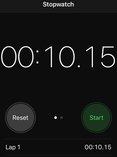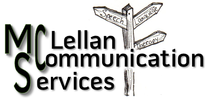|
A lot of us are feeling burnt out from all of the lockdowns and restrictions we have been facing for more than a year now. I, for one, find it more and more challenging to manage all the at-home time with my two children, while also balancing a busy work life!
No one has time to fit in an extra 15 minutes to work on speech-language goals. Even if you do have that 5 minutes of free time, it can be difficult to feel motivated to work on something “extra,” even if it benefits us in some ways. In addition, many families are behind on receiving assessments and services during the pandemic. What if I told you that fitting in time to encourage speech and language development, or speech and language homework, didn’t have to be one more thing to fit into your day? What if I told you that you can work on almost any speech goal in natural, every day situations that you’re ALREADY doing every single day? Most speech and language goals can be practiced in the middle of the most boring, routine activities without much extra effort at all. In fact, children learn best in a play-based, natural setting. We use communication all the time. We use it when we are trying to decide what to eat for breakfast, we use it when watching TV together, we use it when we’re walking to the park or in the car on the way home from school, or helping our kids with their homework. Language opportunities are EVERYWHERE. I’m going to give you ONE example here of how you could work on your child’s “L” sound at home, any time you’re having a conversation. My daughter and I went on an “adventure” today to the park (her words). She pretended the three trees near the park were a forest. She said, “wook, mom, a forest!” I responded, “I see!” And then I took a moment right there to practice her good “L” sound, which we have already established she can do. I had her look at me, and showed her putting my tongue tip up behind my top teeth. I said, “Can we try saying “lllllook” again? Put your tongue up!” She tried again and got it perfect. That’s all it took. One natural opportunity that came up without any extra preparation or time set aside. If you’re looking for personalized tips and supports, please contact me! I’d love to consult with you about you and your child’s needs. If you have concerns about your child’s speech and language development, please seek advice from a Speech Language Pathologist in your area! You can contact me from the contact form on this website. Have a wonderful week!
0 Comments
I recently attended the Hanen More Than Words® workshop and am now able to give this workshop to parents, as well as use the strategies and information along with video feedback during individual sessions!
Hanen More Than Words® is a fantastic program for young children with Autism Spectrum Disorder or other Social Communication Disorders, and their parents. The program is for children ages 5 and under, and requires parent involvement. If you think you may benefit from speech therapy for Autism or another social communication disorder, even if your child does not yet have a diagnosis, please contact me! I would love to discuss how I can help you.  Today I want to talk a bit about 'waiting' and how slowing down and giving others more time can help them communicate. The concept of slowing down in life, or stopping to 'smell the flowers' is certainly not new. Many speech and language blogs talk about the importance of waiting when working with children with communication difficulties. But waiting is not just important for kiddos with language delays or disorders. It is also worth thinking about in terms of adults with communication disorders such as Aphasia or Apraxia of Speech. 'Waiting' is the idea that when we make a comment or ask a question, instead of expecting an immediate response, we should wait several seconds before verbalizing again. The rule of thumb is often to wait 10 seconds before saying more. Children with language delays and disorders benefit from waiting because it gives them a chance to understand what you have said, and possibly to form a response. It can take young children much longer to form a response or process a message than it takes a fluent adult speaker. Waiting is also useful in communications with adults with Aphasia. Aphasia is a language disorder that occurs as a result of injury to the brain, most often as the result of a stroke. Aphasia can look different depending on the type and severity of the disorder. Sometimes Aphasia means people have trouble understanding spoken or written language. Other times, people with Aphasia have difficulty finding the words to say and with expressing verbal or written messages. Often, there are difficulties with both understanding and expressing language. Waiting allows a person with Aphasia more time to put his or her message together. But it goes beyond just asking a question and slowly counting to 10 in your head. People with Aphasia may also be slower to get individual words out, or they may need to try a number of times to get a word or phrase 'right'. It is important not to jump in and finish the word for them (unless they specifically ask for that). Finding the words to say, or processing a message that a person has heard and then forming a response can take time. Try to incorporate a little more waiting in your daily interactions with kids, especially if your child has a language delay or disorder. And if you have an older loved one who also struggles with communication in any way, wait a little longer for that person too. A little extra time could make all the difference. Toddlers go through a stage of incredible language growth, especially from ages one to two years, Some babies may say their first real word as early as 8 months, and others will wait until around their first birthday, or later, to grace you with their first real words. But whenever those first words do come, children begin to gain new words all the time at a rapid pace.
If you are wondering what you can do to get your little one trying more words, then this post is for you. These three language rich activities are easy to do at almost any point in your child's day. Any time you are with your child is an opportunity to enrich language and vocabulary growth. These are all activities I myself have done with my own little girl who is 22 months! 1. Sing songs together. I tend to make up silly songs about everything. We even have our own special teeth brushing song! The nice part about it is that I have sung the teeth brushing song so many times, that my daughter knows it! It goes like this (to the tune of Row, Row, Row Your Boat): Brush, brush, brush your teeth, Brush them every day. Brush the back and brush the front Brush the plaque away. It's silly, but it works. You can make a song out of almost any routine. Many children (and adults too) learn and memorize better when the words are set to music! Songs can help make any routine or task more comfortable and familiar for your little one. If you're not comfortable making up your own songs, just singing simple nursery rhymes together is also a wonderful way to build language. Make sure you sing slowly so that your child has a chance to learn and participate. It's even better if the song has actions, so even really young ones without many words can contribute to the song. 2. Play turn taking games. What is a turn taking game? Well it's pretty much just like it sounds. It is any game or activity where the participants take turns performing the actions. Many common and objects can be used in a turn taking game. Make sure you use lots of language in your game. For example, if you have a large bouncy ball in your house, you can play this simple game together: Sit down on the floor and have your child sit across from you. Bounce the ball and say "ball!" then roll the ball to your child and say "Roll!" Have your child roll the ball back to you. At first, you will be saying the words for both of you every time. But eventually, your child might try to say some of the words too! It's ok if 'ball' sounds like "Baw" or something similar. First words often do not sound perfect. But they definitely count. 3. Read together. This one is probably something you have been doing for ages. It's worth mentioning here, though, because reading is such an important part of language development. Reading together is also a great way to spend quality time with each other. Books that you can interact with, like lift the flap books, or books with textures and materials, are great because it gives your little one a chance to engage with the book as well. As you read, you can stop and comment on the pictures. For example, in the Very Hungry Caterpillar, you could read the page and then say "Look at all the food he ate!" or "Mmm, that cake looks yummy." You can also ask your child questions about the story, but try not to 'quiz' them, as this can actually be a deterrent to saying new words. What I mean by quizzing is pointing to a picture of an apple, for instance, and saying, "What's that?" or "Can you say 'apple'?" As parents, it can be easy to fall into this trap. I have done it myself. It's best to ask more engaging questions such as "That apple looks tasty. Do you like apples? Do you like green apples or red apples?" These questions still reinforce vocabulary words and offer the potential for spontaneous responses. There are many ways to help your child learn to say new words. I hope these three activities will give you an idea of some easy activities you can do in your home to support language growth. Remember, if you have concerns about your child's language or speech, it never hurts to ask. A Speech-Language Pathologist may be able to help. I decided to put some of my resources and materials onto the website Teachers Pay Teachers. I will expand my store in the coming weeks.
These materials are ones I have used in the past in my work with clients. So far, I have added two difficulty levels of sentences and paragraphs which I have used as part of my therapy programs for adult clients with Aphasia and with Apraxia of Speech. I strongly suggest that these resources be used only by other SLPs (or teachers if they should find them useful in some way), and not by individual clients. Visit my store! Enjoy. Welcome, readers! I think what this website really needs is a mini blog. This will be full of quick updates both about my speech-language therapy services available right here in the city of Saskatoon, as well as general speech and communication tips. I plan to talk a little bit about all my different areas of practice expertise to begin with, and will go from there. If you have a speech and language related question that you would like me to talk about on this blog, please feel free to leave a suggestion! I would love ideas on what people would like me to talk about.
|
AuthorWrite something about yourself. No need to be fancy, just an overview. Archives
May 2021
Categories |
Proudly powered by Weebly

 RSS Feed
RSS Feed